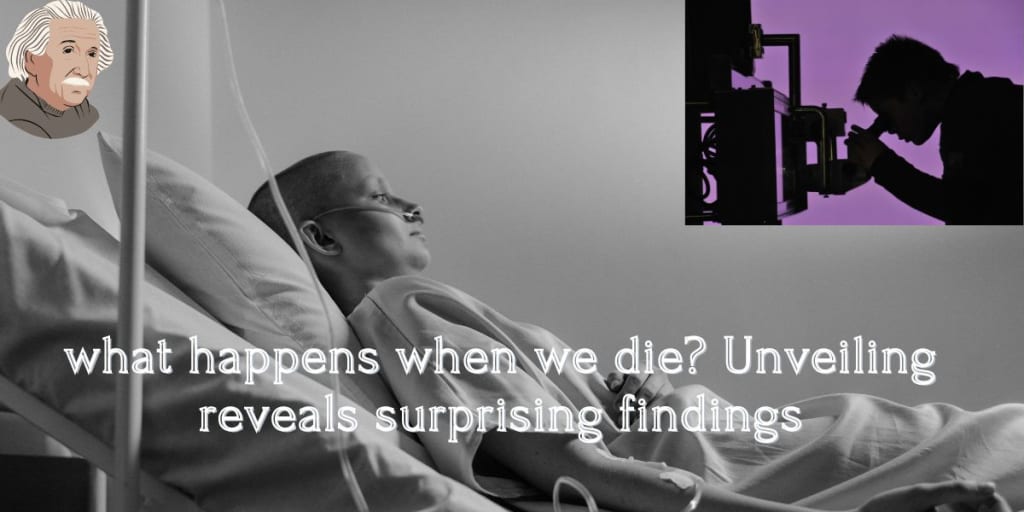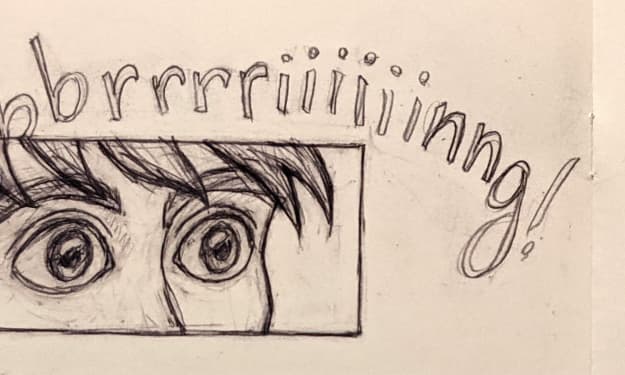"Have scientists just discovered what happens when we die? Unveiling reveals surprising findings"
Explore the unprecedented discovery of what happens when we die, as revealed in the unveiling. Learn about the memory of life in the dying brain and the science behind it

1. Accidental recording of a dying brain.
In February 2022, a remarkable event came to light - an accidental discovery that shed new light on the elusive realm of death. The story begins in 2016 in Canada when an 87-year-old patient is being treated for epilepsy. Doctors performed brain scans to monitor neural activity as part of his medical care. Unfortunately, the patient suffered a heart attack and died during one such scan.
However, this unfortunate incident provided researchers with an unprecedented opportunity. They accidentally capture a sequence of moments in the patient's mind, spanning from before his death to the moments immediately after. This unique recording contains nearly 900 seconds of brain activity, providing a glimpse into the puzzle of the human brain with terminal change.
2. The science behind life memory.
The results of this extraordinary event were published in the journal "Frontiers in Aging Neuroscience". What the researchers saw was not surprising. Dying brains exhibit increased gamma activity, a type of brain wave associated with memory recall. These patterns also resemble brain wave activity during complex tasks such as dreaming and meditation.
This revelation lends credence to the long-held belief that as death approaches, the brain begins a phenomenon often described as "life recall." In the case of the patient in question, this process continues for thirty seconds after cessation of cardiac activity.
3. Importance of Study.
So far, most insight into this phenomenon has come from the testimony of people who have had a near-death experience (NDE). A common practice in many NDE accounts is to relive significant moments in their lives. Although similar gamma increases have been observed in the brains of animals that die during experiments, this study provides a rare glimpse of the human brain's response to death.
However, it is important to emphasize that this is only a case study. Specifics of the patient's condition, including his epilepsy and medications, may have influenced his brain's response to death. In addition, the lack of baseline brain activity measurements complicates the interpretation of these results.
4. The Human Connectome Project: Mind Mapping.
The 21st century has proven to be an important era for neuroscience, marked by significant advances in our understanding of the human brain. The Human Connectome Project (HCP), launched in 2009 as a US state-sponsored effort, aims to comprehensively map the human brain. Originally planned to be completed in five years, the project expanded into a multidisciplinary international attempt due to its vast scope.
HCP encompasses diverse areas of research, from uncovering the mysteries of Alzheimer's disease and dementia to identifying patterns of brain activity in anxiety disorders. Furthermore, it examines the human brain at different stages of life, from infancy to old age. Although the study of the “dying brain” is not directly relevant to HCP, it makes an important contribution to the expanding field of neuroscience.
5. Ethical dilemmas and prospects.
Ethical barriers to further knowledge in this area are encountered. Researchers cannot ethically measure brain activity until the patient is dead, as this would compromise their duty of care. As a result, rare cases such as those in 2016 have hampered data collection in the region.
Although technological advances will eventually lead to more examples, for now, this unique glimpse of a dying brain stands out as an extraordinary event. While skepticism is often associated with the notion that life flashes before one's eyes at the time of death, this study provides scientific evidence to bolster such claims.
6. Contemplating the mysteries of death.
Although this discovery deepened our understanding of the dying brain, it did not stop the difficult journey of death. Humanity's quest for immortality continues in various fields of science and technology. However, this revelation reflects on whether the management of death will evolve. As the Human Connectome Project and related initiatives increase our understanding of neurological conditions, can we also try to shape the experience of death while ensuring that our final moments are by our wishes?
About the Creator
Sol
I am a writer who is funny, but not funny enough to be a comedian. I am also not smart enough to be a scientist. So, I write articles about things I don't know anything about.






Comments
There are no comments for this story
Be the first to respond and start the conversation.